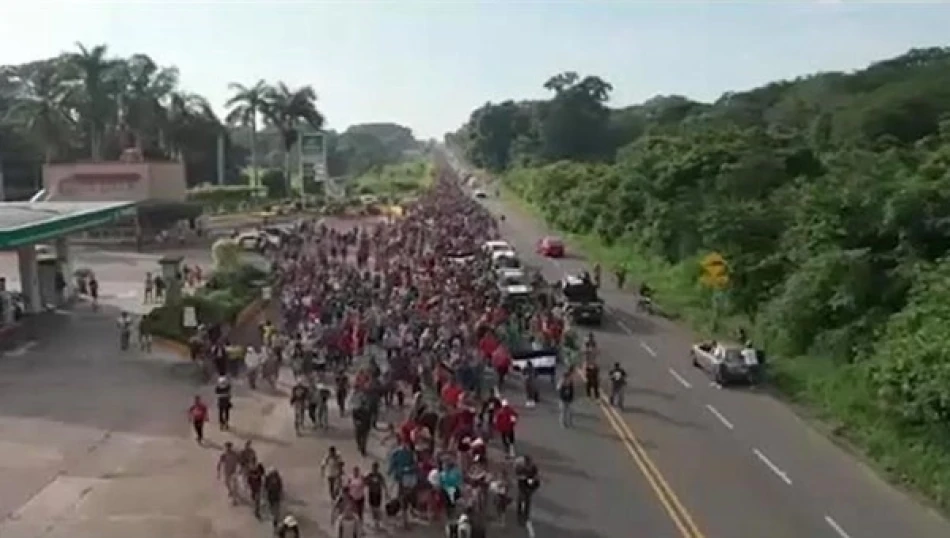
Trump Administration Allowed to End Deportation Protection for 60,000 Immigrants
Federal Court Clears Path for Trump Administration to End Deportation Protections for 60,000 Central American and Nepalese Migrants
A federal appeals court ruling has opened the door for the Trump administration to terminate temporary deportation protections and revoke work permits for over 60,000 immigrants from Central America and Nepal, marking a significant escalation in the administration's immigration enforcement strategy. The decision immediately affects vulnerable populations who have lived and worked legally in the United States for years under humanitarian protections.
Court Ruling Removes Legal Barriers
The U.S. Court of Appeals for the Ninth Circuit issued an order Wednesday allowing the government to end Temporary Protected Status (TPS) for immigrants from Nicaragua, Honduras, and Nepal while legal challenges to this policy remain under judicial review. Notably, the three judges who signed the order provided no legal explanation for their decision, leaving immigration advocates and legal experts questioning the reasoning behind this abrupt policy shift.
Immediate Impact on Protected Communities
The court's order creates an immediate crisis for Nepalese immigrants, whose protection status expired on August 5th. For Honduran and Nicaraguan nationals, the protection will terminate on September 8th, giving these communities less than a month to prepare for potential deportation or find alternative legal pathways to remain in the United States.
Economic and Social Consequences
The affected populations have established deep roots in American communities over years or even decades of legal residence. Many own businesses, have U.S.-citizen children, and contribute significantly to local economies. The sudden termination of their work authorization could create labor shortages in industries that heavily rely on TPS holders, including construction, hospitality, and healthcare services.
Historical Context of TPS Designations
These TPS designations were originally granted due to extraordinary circumstances in the migrants' home countries. Nepal received protection following devastating earthquakes, while Honduras and Nicaragua have faced ongoing political instability, natural disasters, and economic collapse that make safe return impossible for many nationals.
The Trump administration has systematically targeted TPS programs as part of broader immigration restrictions, arguing that temporary protections have become indefinite benefits that exceed their original humanitarian purpose. This approach represents a sharp departure from previous administrations' more flexible interpretation of when conditions warrant continued protection.
Legal and Political Ramifications
The Ninth Circuit's decision is particularly striking given the court's reputation for frequently blocking Trump administration immigration policies. The lack of written explanation suggests potential internal disagreement among judges or recognition that existing legal precedent favors executive discretion in immigration matters.
Immigration attorneys are likely to pursue emergency appeals and seek alternative legal protections for their clients, potentially creating a complex patchwork of individual cases that could overwhelm immigration courts already facing massive backlogs.
Broader Immigration Strategy
This ruling fits within the administration's comprehensive approach to reducing both legal and illegal immigration pathways. By eliminating TPS protections, the administration sends a clear signal that even long-term legal residents with strong community ties face potential removal if their status depends on discretionary humanitarian programs.
The decision may also influence how other countries and international organizations view U.S. commitments to refugee and humanitarian protection, potentially affecting diplomatic relationships and America's role in global migration governance.
Most Viewed News

 Layla Al Mansoori
Layla Al Mansoori






